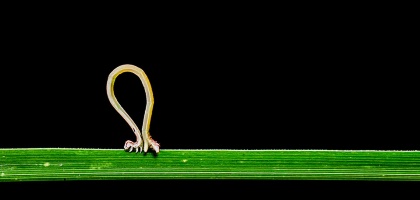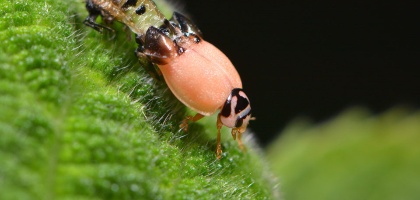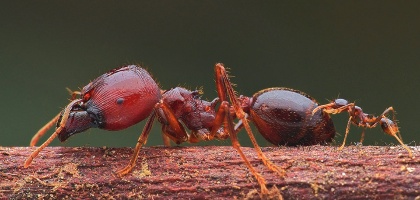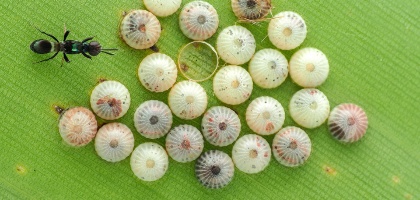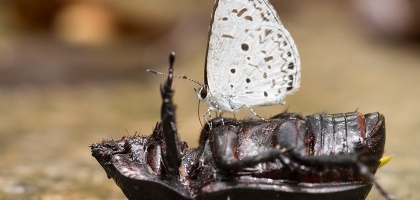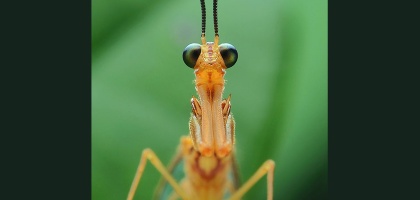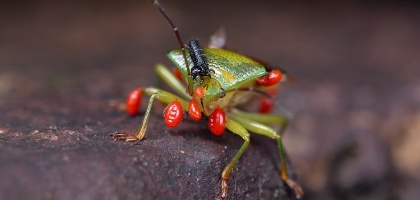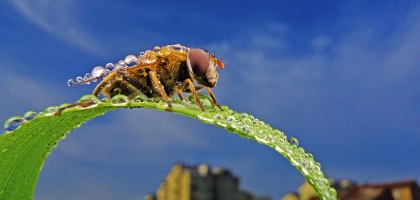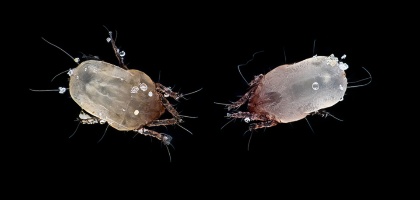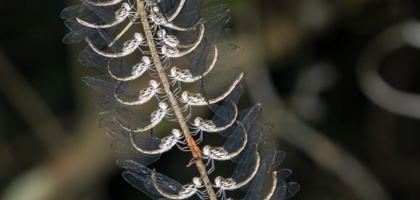平腹小蜂與椿象卵搜主題
平腹小蜂是卵寄生蜂,有時可以在大型椿象卵叢上發現牠們的身影。每隻雌蟲一生可產下約200顆卵。在攝氏25度的環境下,於寄生卵內從發育到羽化,約需20天,一個月就能產生許多新世代。農改場近年來以蓖麻蠶卵作為代用寄主,量產繁殖一種本土的平腹小蜂(Anastatus japonicus),應用於田間防治外來害蟲荔枝椿象,以降低荔枝椿象的數量,同時減少農藥使用,對環境更為友善。然而,大量釋放平腹小蜂是否可能會對其他非目標昆蟲造成影響?仍有待進一步追蹤觀察。
The Anastatus wasp is an egg parasitoid and can sometimes be found on clusters of large stink bug eggs. Each female Anastatus wasp can produce around 200 eggs in her lifetime. At 25 degrees Celsius, it takes about 20 days for these eggs to develop within parasitized eggs and the adult to emerge. In one month, many new generations can be produced. In recent years, agricultural research and extension stations have used ailanthus silkmoth (Samia cynthia) eggs as alternative hosts to mass-produce a local egg parasitoid wasps (Anastatus japonicus), and applied them in the field to control the invasive litchi stink bugs (Tessaratoma papillosa). This method reduces the population of litchi stink bugs and decreases pesticides use, making it more environmentally friendly. However, whether mass releases of wasps may impact other non-target insects remains to be further further investigated.
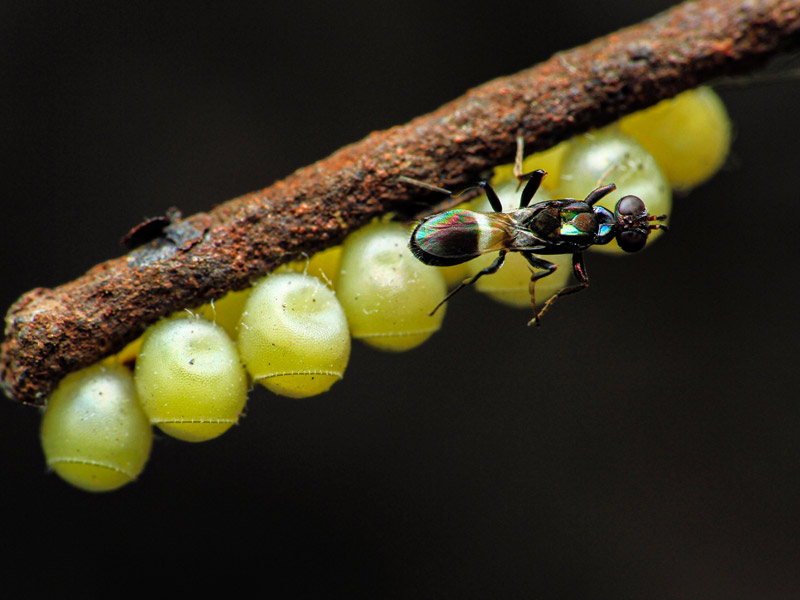
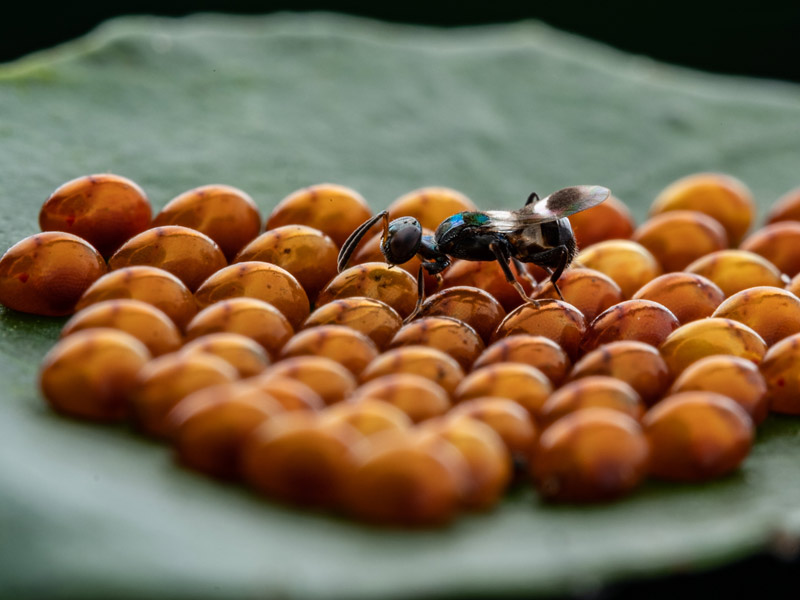
-
主題標籤
